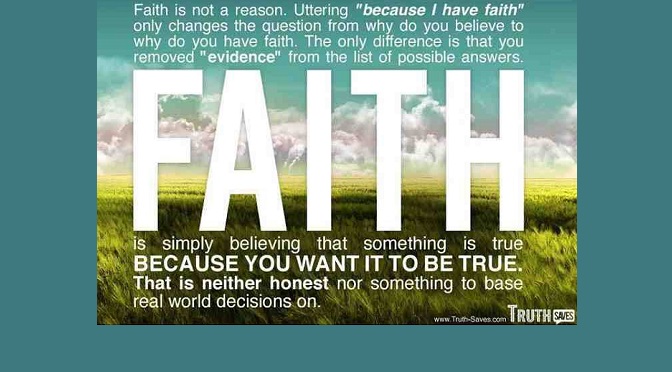If I were an employer, I would have very little patience with an employee who, when I asked them to take the company’s money to the back, went to a river and stuck it in the mud next to the river. Although it is also called a bank, my funds would not be there when I needed to make a payroll.
When talking to religious believers I hear words misused all the time in an effort to confuse the dialog, and confound my statements. I’ve heard God called love, or the universe, or simply “a mystery”. Even Einstein confused many generations of believers when he said that “God does not play dice”. He was using God as a verbal placeholder for the universe, but he ended up giving Christians a reason to claim him as one of their own; he wasn’t. Even if he had believed in a personal god, he was a Jew, and therefore wouldn’t have believed that Jesus was the messiah, or god. He personally said that he was an agnostic, and did not believe in a personal god and that he considered the belief in a God as a father-like figure to be the result of “childish analogies”:
In 1945 Guy Raner, Jr. asked Einstein in a letter, if it was true that a Jesuit priest had caused Einstein to convert from atheism. Einstein wrote, “I have never talked to a Jesuit priest in my life and I am astonished by the audacity to tell such lies about me. From the viewpoint of a Jesuit priest I am, of course, and have always been an atheist. … It is always misleading to use anthropomorphical concepts in dealing with things outside the human sphere—childish analogies. We have to admire in humility the beautiful harmony of the structure of this world—as far as we can grasp it, and that is all.” Einstein’s Letter of 2 July 1945
I have to keep reminding believers that if god is love, or “the universe”, then he isn’t the god of the bible, or the Quran, or any the holy books of the world. We have perfectly good words for those concepts. Why confuse the situation by claiming that love, or the universe, is “God”; a word which has a load of emotional and religious baggage attached to it? Why indeed, other than as a dishonest way to try to win an argument.
Faith is another word that believers like to bandy about, conflating the definition as they see fit.
The dictionary defines faith thus:
1 a : allegiance to duty or a person : loyalty
b (1) : fidelity to one’s promises (2) : sincerity of intentions
2 a (1) : belief and trust in and loyalty to God (2) : belief in the traditional doctrines of a religion
b (1) : firm belief in something for which there is no proof (2): complete trust
3: something that is believed especially with strong conviction; especially: a system of religious beliefs <the Protestant faith>
If you’ll notice, there are 3 different definitions of faith, but in conversations believers will jump from one to the other as if the word means all of them at the same time. Faith is often claimed by the believer to be “the reality of what is hoped for, the proof of what is not seen” (Hebrews 11:1); i.e. Religious faith. Now compare that to the everyday usage of faith as a commonplace expectation due to long experience; like the faith that I have that when I step on the brake, my car will stop, or that the sun will come up tomorrow. When believers conflate these terms in order to win an argument, they are admitting that they can’t win it honestly.
There is a book out now called “I Don’t Have Enough Faith to be an Atheist”, by Norman Geisler, which obfuscates the use of the word faith. Faith used here doesn’t really refer to any of the above definitions. It’s not 1 because it doesn’t apply to a person. It’s not 2 because we don’t believe in gods and don’t practice a religion. It’s not 3 because it’s not a belief; it’s a lack of belief.
We, as atheists, need to stop the conversation whenever we hear words being used incorrectly. If they say that God is love, be sure to clarify that we’re no longer talking about the god of the Bible (and that would be clear enough by mentioning any of the atrocities of that god).
If they say god is the universe, then tell them that even though belief in the universe is warranted, a disembodied intelligence is not the same thing, and is not warranted. If they say that god is awe and wonder, like Oprah did with Diana Nyad, point out that the adherents of most of the religions of the world would disagree with them!
Words are important. The foundation of human knowledge, and the conveyance of ideas, rests on solid definitions and common agreements of word usage. Insist on proper word usage!

